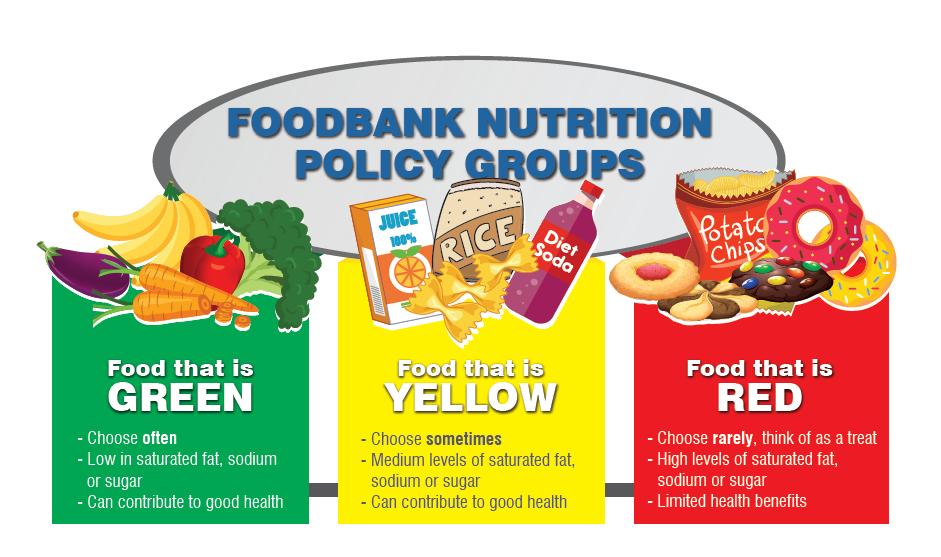
Central Illinois Foodbank has announced the adoption and implementation of a formal nutrition policy, effective immediately.
Under the new policy, foods the Foodbank procures will be sorted into categories of green for choose often, yellow for choose sometimes, and red for choose rarely. These nutrition ranks are in accordance with the Healthy Eating Research (HER) Nutrition Guidelines.
Examples of foods in the green/choose often category include foods that are low in saturated fat, sodium, and sugar; which include canned fruits and vegetables in 100% juice, fresh produce, as well as whole grain cereal and pastas.
The nutrition ranks will guide Central Illinois Foodbank and its 150+ partner agencies in procuring the most healthful food options possible for our neighbors. The policy does not expressly ban the Foodbank from stocking any items, however, the Foodbank will not actively encourage purchases or donations from the yellow and red categories unless necessary.
The policy was developed with the input of a working group consisting of nutritionists, dieticians, community health partners, and Foodbank staff and board members.
“At the Foodbank, we recognize the strong connection between hunger and health. Those who face food insecurity are often challenged with chronic health issues as well due to lack of access to healthful foods,” said Pam Molitoris, Executive Director of Central Illinois Foodbank. “In putting this new policy in place, we ensure that we are doing our due diligence in making sure our neighbors have access to a variety of choices to support lifelong health and wellness.”
The nutrition ranks are being added to the Foodbank’s ordering system in order to allow staff to view what products align with which categories.
In fiscal year 2022, over half of the 9.5 million pounds of food distributed by Central Illinois Foodbank included foods in the green/choose often category.
Funding for the implementation of this policy was made possible by the Blue Cross Blue Shield Nourish grant.